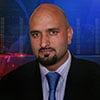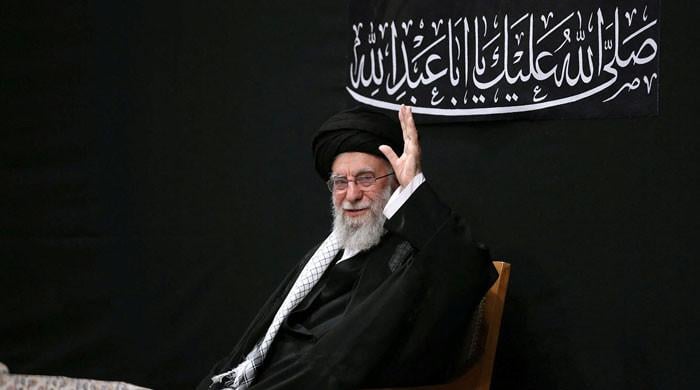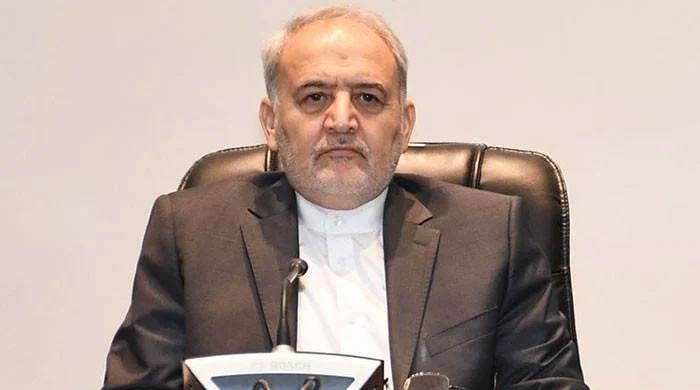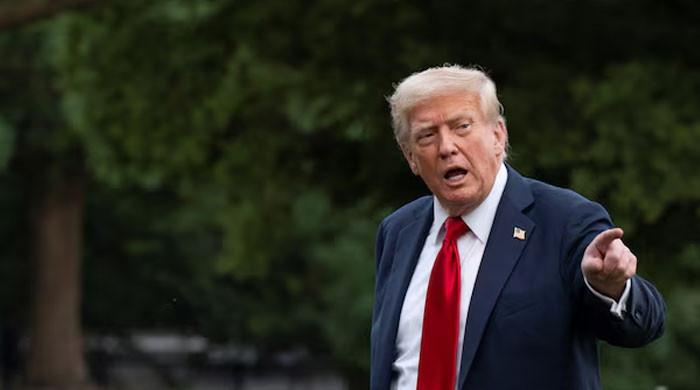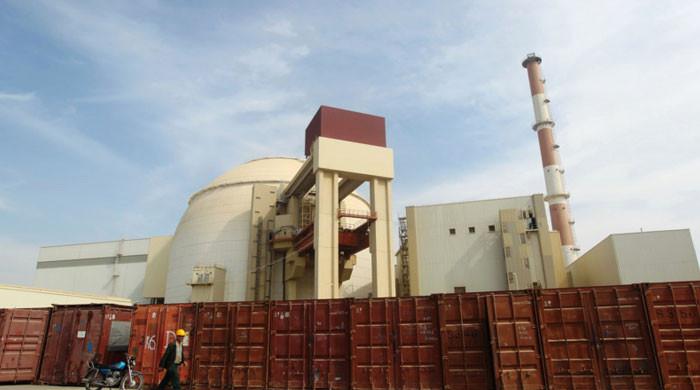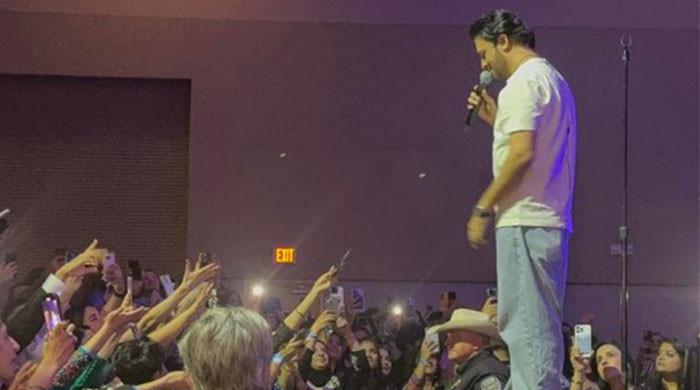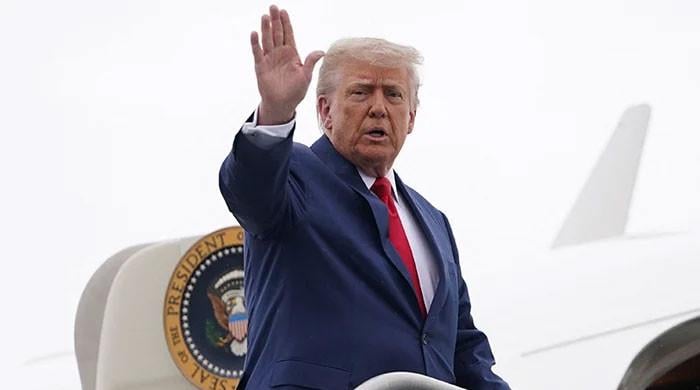Muslim women MPs now outnumber male counterparts in UK parliament
Of the 21 MPs, 11 are women: six Pakistani or Kashmiri origin, four from Bangladesh, and one Kurdish
January 19, 2020
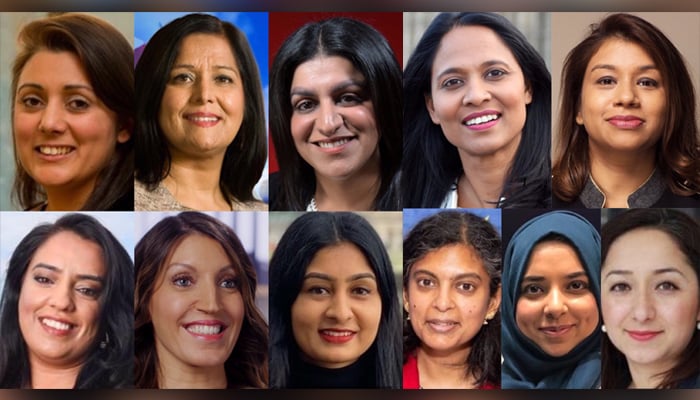
LONDON: For the first time in the UK parliament's history, there are more Muslim women MPs than their male counterparts. After the December 12 general elections, their number grew to 220, which is also a new record, beating the previous 208 women MPs set in the 2017 elections.
In the previous parliament, there were 16 MPs of Muslim faith — of which eight were women.
In the current one, however, the number of Muslim MPs has risen to a new record of 21. Of those, 11 are women: six of these are of Pakistani or Kashmiri origin, four from Bangladesh, and one Kurdish.
Before the Dec 12 general elections, the Labour Party had set a new record by giving more than 50 percent tickets to women candidates. Now, after the elections, Labour has more women MPs in Parliament than men.
Of the 203 elected Labour members of the UK parliament, 103 are women — more than 50 percent. 20 women candidates of Pakistani background stood on prominent 20 seats but only six could make it to Westminster.
Five of the six were re-elected — Dr Rosena Allin-Khan from Labour, Nusrat Ghani from Conservative, Shaban Mahmood, Yasmin Qureshi, and Naz Shah, while Labour's Zarah Sultana was elected for the first time.
Sultana, 27, made a new record of becoming the youngest-ever Muslim member of Parliament after winning a nail-biting contest from Coventry South.
Here’s a brief profile of all six women MPs of Pakistani background.
Zarah Sultana
Born in 1992 in Birmingham, Sultana — of Kashmiri origin — has now become the youngest-ever Pakistani-origin MP. She had had to face a tough fight from her Conservative opponent after Labour awarded her a ticket from Coventry South — a seat they held since 1960.
Sultanas' grandfather moved from Kashmir and settled in Birmingham in 1960s. During her university years, she was also elected to the National Union of Students' (NUS) Executive Council.
Her election campaign was backed by various unions and by Momentum, a group of diehard supporters of Labour leader Jeremy Corbyn. She holds a record of the youngest Pakistani and Muslim ever to be elected as an MP.
Shabana Mahmood
Mahmood, 39, was first elected in 2010 from Birmingham-Ladywood constituency, which is considered one of the country's most deprived areas.
She was among the first three women of Muslim faith to be elected as MPs and the first one of Kashmiri origin — her parents come originally from Mirpur.
A barrister by profession, she graduated in law from Lincoln College, Oxford and served as shadow home affairs minister in 2010, shadow business minister in 2011, and shadow financial secretary to the Treasury.
After the 2015 elections, she was appointed shadow chief secretary to the Treasury but later stepped down from that role. She had openly opposed Corbyn during the 2016 leadership contest.
Yasmeen Qureshi
Qureshi, 59, was born in Gujrat and moved to the UK with her family when she was just nine.
Along with fellow Labour MPs Mahmood of Kashmiri origin and Roshan Ara Ali of Bengali origin, Yasmin was elected the MP from Bolton South East in 2010 on Labour Party’s ticket and was among the first female Muslim members of Parliament.
A qualified barrister, she has worked with Crown Prosecution Service (CPS) and also headed a United Nations' Mission in the Republic of Kosovo.
Qureshi first stood as a candidate in the 2005 elections from London’s Brent East constituency but lost to the Liberal Democrats' Sarah Teather.
Subsequently, she was awarded a ticket to Labour’s safe seat of Bolton South-East in the 2010 elections — a seat she won for the fourth time in as many elections. In 2016, she was appointed as shadow justice minister.
In these elections, she won again by bagging 21,516 votes.
Nusrat Ghani
Ghani was born in Birmingham to Kashmiri parents. She was the first Muslim woman to become a member of the Parliament on Conservative Party’s ticket in 2015.
Ghani completed her school education in Birmingham and graduated from Birmingham City University.
In 2013, she was selected to represent the Wealdan constituency in South East London — a Conservative safe Seat that she later won in the 2015 elections.
She became a member of the powerful Home Affairs Select Committee in 2015 and became the parliamentary private secretary at the Home Office in 2017. In 2018, she became the assistant government whip and minister in the Transport department.
Ghani was also the first MP to take oath in Urdu, dressed in the traditional shalwar kameez, after winning the 2017 elections. She became the first woman minister of Muslim faith to speak from the dispatch box.
She has now won her third consecutive elections from Wealden by securing 37,043 votes.
Naz Shah
Born in Bradford, Shah became the first became MP from Bradford West in 2015 by defeating Respect Party’s George Galloway — then an MP from Bradford West — with a lead of more than 11,000 votes.
Interestingly, she was not the Labour Party’s first choice to stand in the elections but was endorsed by its national executive after Amina Ali, the candidate selected to represent the constituency, stepped down citing personal reasons.
Shah successfully defended her seat in the 2017 elections by an even bigger margin of 21,902 votes. In these elections, she won for the third time in a row from Bradford West, securing 33,736 votes and yet again with an even bigger lead of 27,109 votes.
Dr Rosena Allin-Khan
Dr Allin-Khan, 42, was a practising doctor before becoming an MP in 2016 from Tooting in a by-election. The seat was left vacant after serving MP Sadiq Khan was elected the London Mayor.
Her mother was a singer of Polish origin while her father was of Pakistan background; her parents separated after a few years of getting married.
After finishing school, Dr Allin-Khan studied medical biochemistry at Brunel University and later studied medicine at Cavendish College, Cambridge.
Before she was elected the MP, she served as the local councillor in the Wandsworth council, representing the Bedford ward in Balham.
